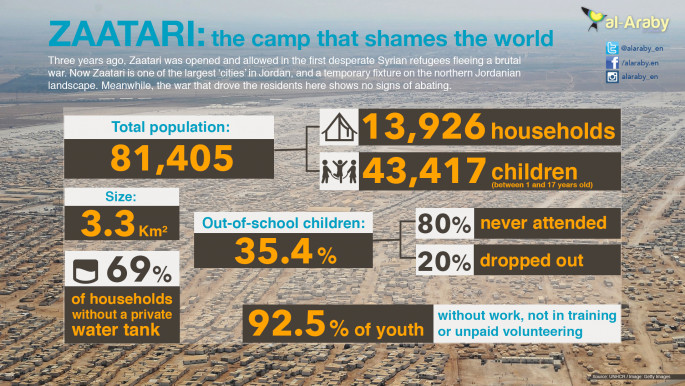Molham Traifi: the Syrian activist who keeps on giving
At the beginning of the Syrian revolution in 2011, Baniyas - close to Latakia - rose up against Bashar al-Assad's rule. Along with Daraa it became the first town to experience the regime's punishing sieges.
One Latakian student was inspired by their struggle and drove his car into the centre of Jableh - in Assad's home province - telling residents they should load his car with milk and bread if they wanted to help the people of Baniyas.
Molham Traifi's car and four small trucks were filled with supplies and driven to the regime cordon outside the town.
Some members of the team pretended to be from important Alawite families and were allowed to pass unheeded. Others were forced to bribe the soldiers.
They broke the siege and gave the starving men, women, and children of Baniyas the bread and milk they needed to survive.
Inspired
Traifi went on to organise other donor campaigns and paid a huge price for his kindness and bravery.
He was arrested by Syrian security for organising anti-regime protests and brutally tortured. Traifi managed to flee the country but was unable to reconcile the horrors he experienced in the regime prison.
He returned to Syria and fought for a Latakian brigade of the Free Syrian Army, and died in battle.
Molham's name means "inspired" and his life motivated a group of Syrian students to continue his good deeds.
Molham Volunteer Team was founded in October 2012 and is dedicated to helping the hardest hit by Syria's five-year war through its 40 volunteers.
Thousands of sick, injured, homeless and orphaned Syrians - inside and outside the country - have benefited from the cause. Molham assist all Syrians regardless of their religion or political opinions.
"In Latakia, Sunni and Alawites lived side by side," said Atef Nanou, the manager of Molham Volunteer Team. He was a close friend of Molham and together they fled Syria after the activist's torture.
 |
| [Click to enlarge] |
Molham's first operation was to bring some light to the dark and troubled lives of refugee children in Jordan's Zaatari camp. For most of the Syrian youngsters this was their first Eid away from home.
"The situation for the children was horrible, so we raised money through our personal Facebook pages to organise a festival for them," he said.
These "Hope Festivals" are now regular at the camp.
Molham Volunteer Team provide Syrian the seriously ill and the injured with medical care.
Few Syrian cancer patients in Jordan can pay for their care. So the team arranges flights and accommodation in Turkey, where the sick are treated for free.
The team have helped countless refugee families - and 150 orphans in Ghouta - who are supported by donors who give $50 a month.
The group finds accommodation for homeless refugees and those facing eviction.
Syrian children and students are also supported financially to help their studies and prevent them becoming part of the lost generation.
| A Syrian child living in Saudi Arabia sent the contents of her piggy bank after seeing Douma on TV. - Atef Nanou, manager of Molham |
Over the past two months, the World Food Programme and a number of NGOs working with Syrian refugees announced crippling cuts to their aid programmes. It is expected to have a devastating effect on the lives of the vulnerable and impoverished exiles.
Quick to act
It means that now more than ever, the team's work is an indispensable lifeline for the four million Syrians living in Jordan, Lebanon and Turkey - and the millions more still under siege inside their war-torn country.
Molham mobilised to raise money for the victims of the Douma bombings on Sunday, where 100 people were killed in a regime air raid on Douma's market.
They were inundated with responses from the public. Women donated their jewellery – one Syrian refugee gave the group her wedding ring.
Two children even donated the small amounts of money they received on their birthdays to the injured.
"A Syrian child living in Saudi Arabia sent the contents of her piggy bank after seeing Douma on TV," Nanou said.
Although the organisation still works on a relatively small scale compared to the large NGOs, they are making a difference to the lives of hundreds of Syrians.
One man had gone blind and was assisted by a volunteer from the group, and was able to partially see again after months of treatment.
"The cases that touch me the most are those where people are admitted to hospital and doctors have no hope for their survival, but they pull through," Nanou said.
The most touching of these was when a two-day-old baby needed injections every day to survive - but each cost $1,000.
"We discussed whether we could afford it, or if the money should go to another case. We decided to pay for the injections and on the third day the baby got better."
These achievements are rare, he says, but motivate him through the daily hardships of life in Jordan.
"It is a catastrophe what is happening in Syria, and nothing we can do will be enough," Nanou said.
"After the bombing in Douma, a hundred people are missing limbs and they will all need support. The catastrophe is getting bigger and bigger and we can't cover everything."





 Follow the Middle East's top stories in English at The New Arab on Google News
Follow the Middle East's top stories in English at The New Arab on Google News


